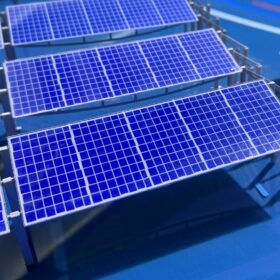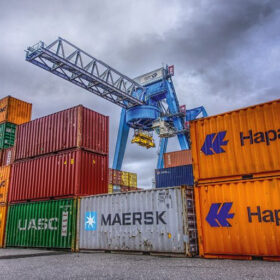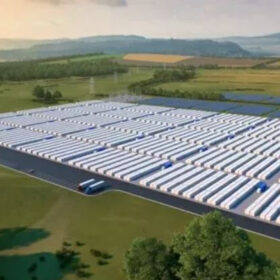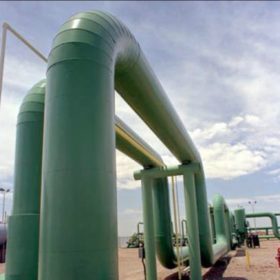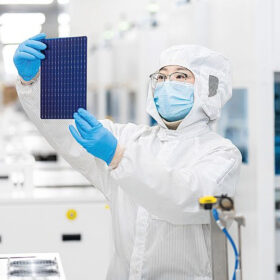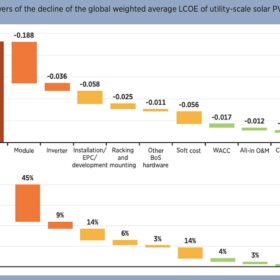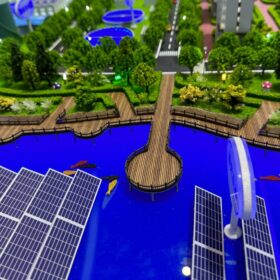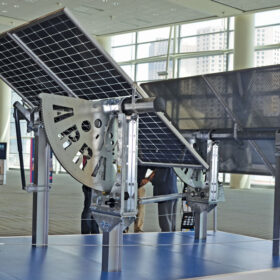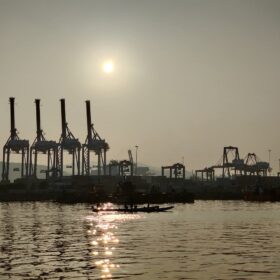Power-generating breakwaters for floating photovoltaics
Scientists from Singapore have designed new floating breakwaters integrating wave energy converters that can be used to reduce the impact of waves on offshore PV systems. Their analysis showed that the wave energy systems can achieve the highest additional power output when the wavelength is shorter.
The shifting sands of PV module supply
Chinese solar manufacturing capacity faces a downturn that is unlikely to translate into growth in other regions, writes S&P’s Edurne Zoco.
Ireland in line for 1 GWh iron-air battery storage project
In what could be Europe’s first, FuturEnergy Ireland has proposed a project that could store energy for up to 100 hours and be operational for 30 years.
The Hydrogen Stream: Hygenco launches 1.1 GW renewable energy tender for green ammonia project
Hygenco Green Energies has invited bids for over 1,125 MW of renewable energy to support its upcoming green ammonia project. The company intends to procure 625 MW from solar PV projects and 500 MW through wind power.
How will PV’s intellectual-property scuffles shake out?
Lawyers are doing brisk business as tunnel oxide passivated contact (TOPCon) solar technology moves into the mainstream. A series of patent infringement cases have been launched in the United States and Europe and their impacts are reverberating through the marketplace. How likely is it that winners will emerge?
Global average solar LCOE stood at $0.044/kWh in 2023, says IRENA
The International Renewable Energy Agency (IRENA) says the result represents a 12% year-on-year decline. The figure has fallen 90% since the start of 2010.
The hidden potential of green energy stocks
The green energy sector in India has been showing strong performance, and so are the green energy stocks. And everyone wants a piece of the pie.
New method to identify optimal floating PV sites
Researchers in Spain have created a novel method to select within a set of water bodies those where the investment in floating PV could be most beneficial. They combined geographic information systems, multi-criteria analysis, and intelligent optimization. The new approach reportedly results up to 8.4% better LCOE compared to conventional methods.
First Solar opens 3.5 GW solar factory in Alabama
First Solar has opened a $1.1 billion, 3.5 GW solar manufacturing facility in Lawrence County, Alabama.
Array Technologies unveils 77-degree solar tracker stow for hail protection
Array Technologies says it has developed a 77-degree solar tracker stow designed to protect solar assets from hail and high winds by responding to severe weather events.
